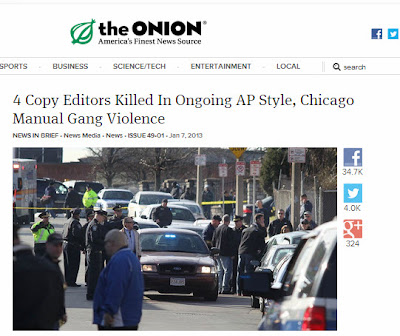 So says an article by Bruna Martinuzzi in openforum.com. She likes to hire people with humanities degrees and believes that more hiring managers are doing the same. More savvy leaders are realizing the value of excellent writing and communication skills in this era of texting and Twitter. The ability to write simply, elegantly, and without jargon is truly going downhill.
So says an article by Bruna Martinuzzi in openforum.com. She likes to hire people with humanities degrees and believes that more hiring managers are doing the same. More savvy leaders are realizing the value of excellent writing and communication skills in this era of texting and Twitter. The ability to write simply, elegantly, and without jargon is truly going downhill.As Martinuzzi writes, English majors have the coveted communication skills that employers crave. We have excellent writing skills, a trait that 97 percent of executives rate as very important. We know how to conduct research and think critically. Martinuzzi also relates the value of empathy in the workplace and cites a University of Toronto study that shows that those who read a lot of fiction have higher levels of empathy. Working with engineers and other scientific sorts, I have found that many of them can be introverted and inwardly focused and not necessarily empathetic!
Ultimately, Martinuzzi recommends combining a technical or other type of major with an English major (or another liberal arts subject). That seems like good advice. I was lucky that I fell into technical writing and editing the way I did, as when I was hiring people, I tended to shy away from hiring people with no job experience. I found that I was most drawn to hiring people who had both writing and graphic skills, in fact.
It's nice to see that English (or other liberal arts) majors are more in demand, because it seems I'm also seeing articles advising young people NOT to major in English. And in some ways I'm glad that other people do not have strong writing skills, because it's job security for me!


